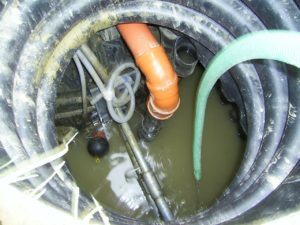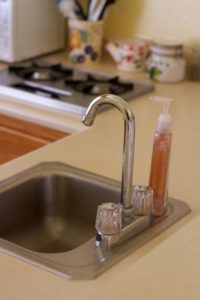Fort Mill, SC – How to Prevent Sewage Backup in Your Home to Avoid Water Damage
Posted in: Videos

Wondering how to prevent a sewage backup in your home? Here are some helpful tips that you can use!
The sound of running water can be quite relaxing, except when it is foul and is coming out of your clogged toilet! This backward water flow caused by a sewage backup is not just dirty, but also full of bacteria, waste, and other contaminants, which pose a significant health hazard.
Moreover, the cleanup is extensive and if the water is left unattended, it can cause some serious damage to your property and belongings. This is why you must protect your home from a sewage backup.
To prevent a sewage backup, you first need to understand what causes it:
What Causes a Sewer Backup?
A sewage backup occurs when a blockage obstructs the regular flow of wastewater from your home to the main sanitary sewer. This causes sewage water to backtrack and flow into your home. There are multiple causes of a sewage backup, including an aging sewer system and broken or warped sewer lines.
Similarly, excessive melted snow or rainwater can also enter the sewer system from the gutters installed across your area and push the dirty water back into your home. A deteriorating or cracked sewer lateral, which is the pipeline between your home and the city’s sanitary sewer main, can also cause a backup.
Other reasons include tree roots entering and then obstructing the flow of sewage water, blockages or debris stuck in your city’s main sanitary system, sump pump failure, and a blocked plumbing line inside your apartment building.
Now, let’s explore how you can prevent a sewage backup:
Don’t Throw Anything in Your Toilet
Make sure that you don’t flush anything down your toilet except for toilet papers and human waste. Items such as wipes, diapers, cigarette butts, facial tissues, paper towels, sanitary pads, tampons, etc., belong in the trashcan.
Don’t Try to Wash Grease and Other Such Materials Down the Kitchen Sink
Grease and other materials, such as coffee grinds, bacon fat, and food waste might clog your sink. You should always throw them in the garbage can rather than dumping them down the drain.
Install a Backwater Valve
Invest in a backwater valve, which can reduce the chances of sewage water flowing into your basement when the main system starts to back up. The valve will allow water from your sinks, toilets, and bathtubs to flow out of your house. In case the water starts to flow backward, the flap on the valve will shut down and stop the backflow.
If you’re already dealing with a sewage backup and want to prevent the dirty water from damaging your home, contact a reliable water damage restoration and sewage cleanup company.
Return to: Fort Mill, SC – How to Prevent Sewage Backup in Your Home to Avoid Water Damage
Social Web